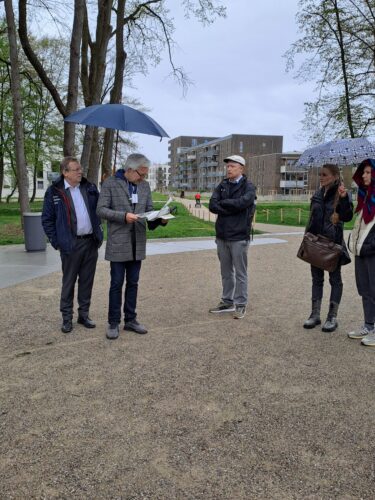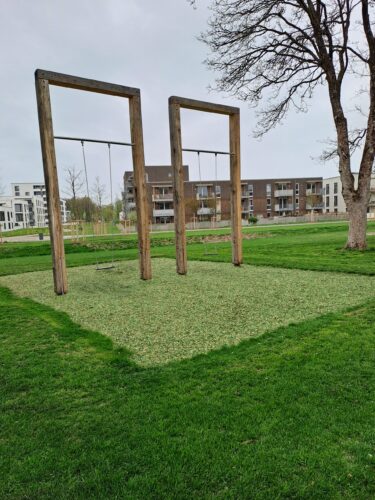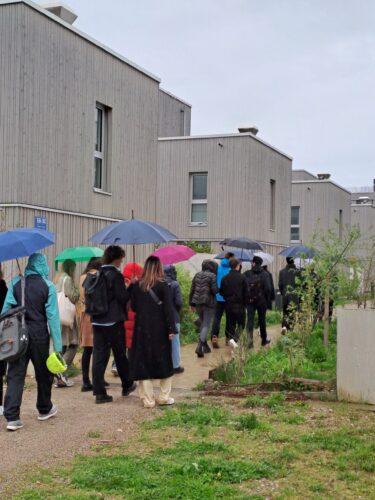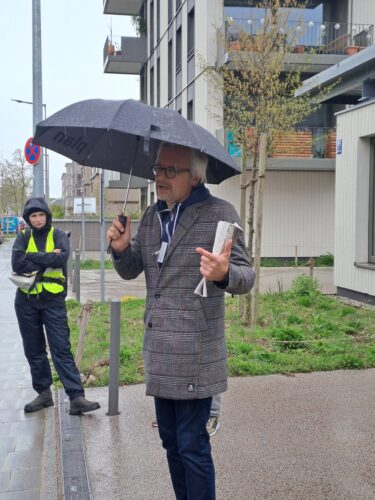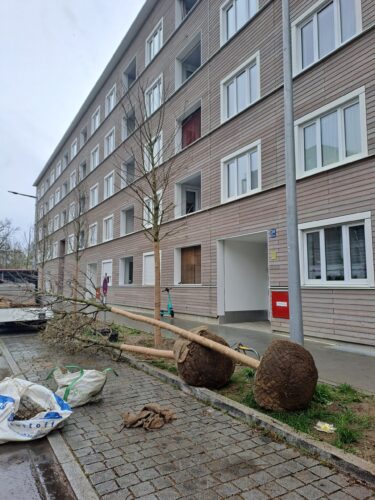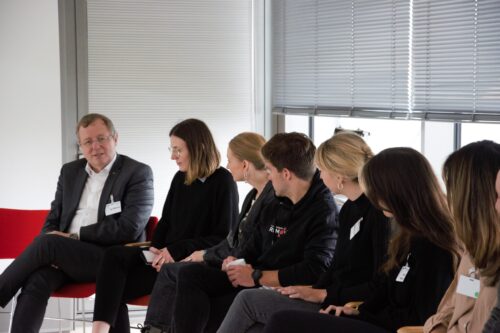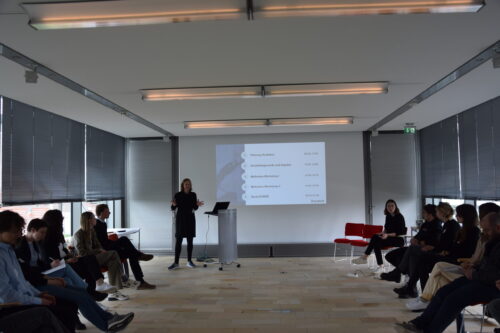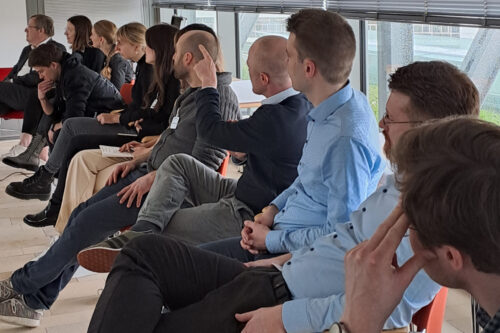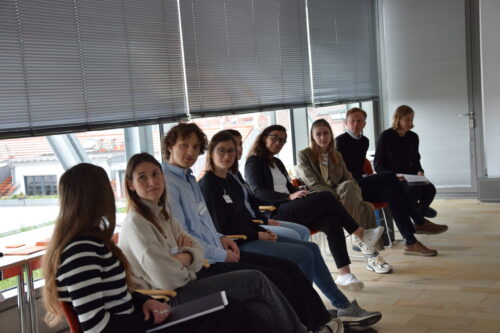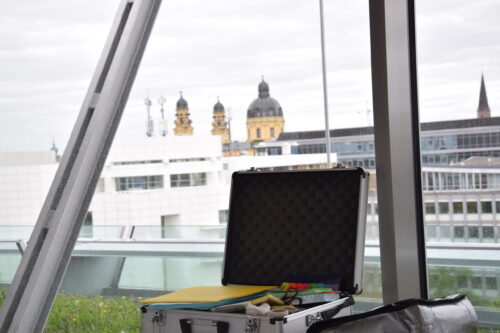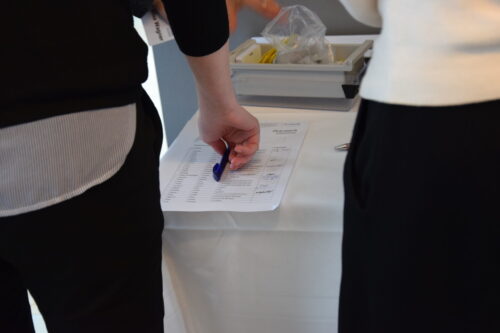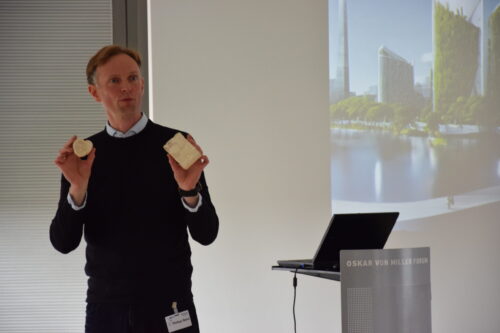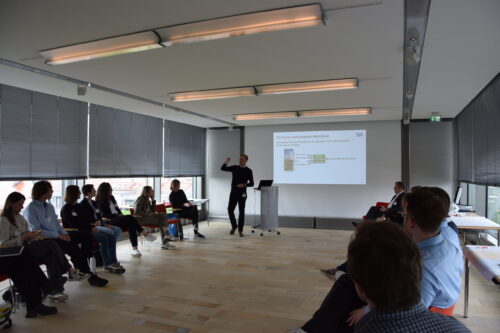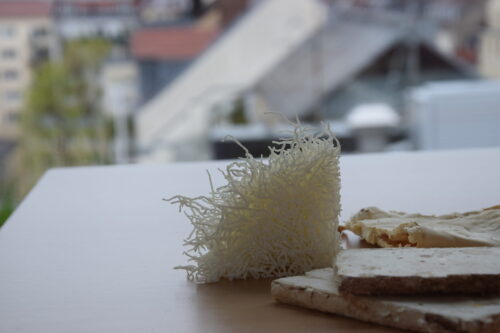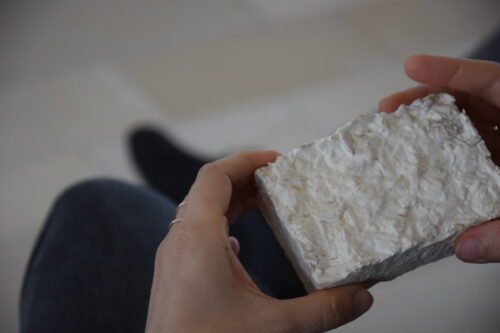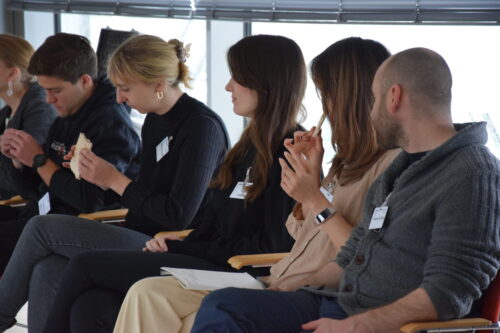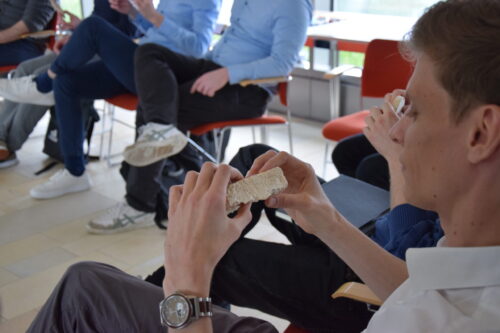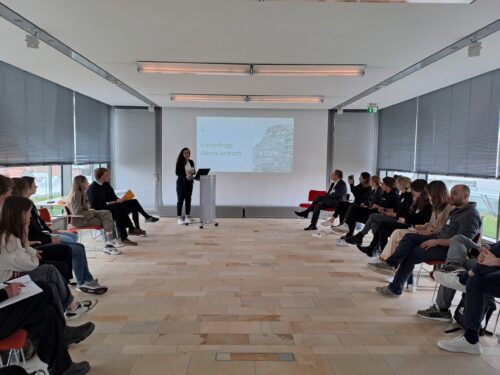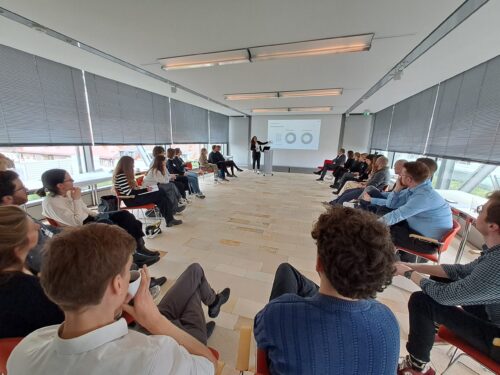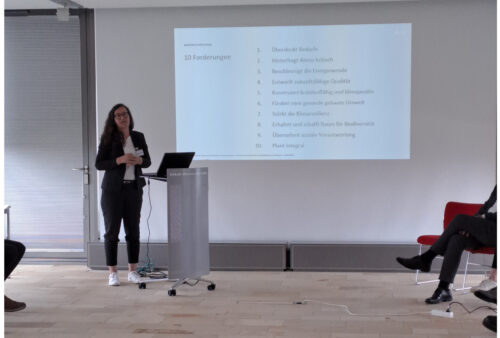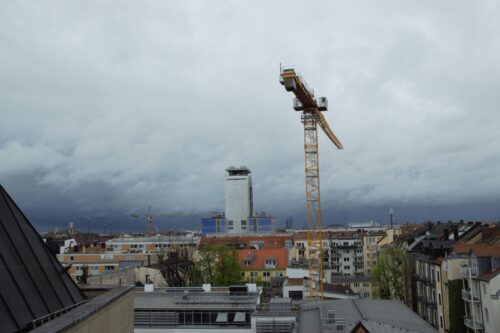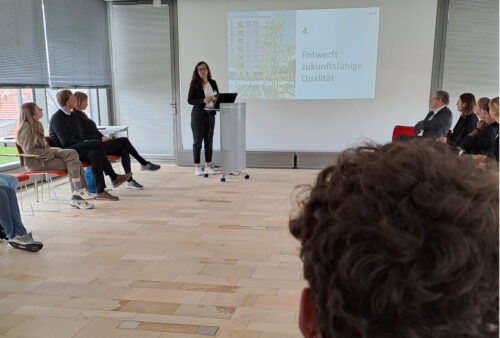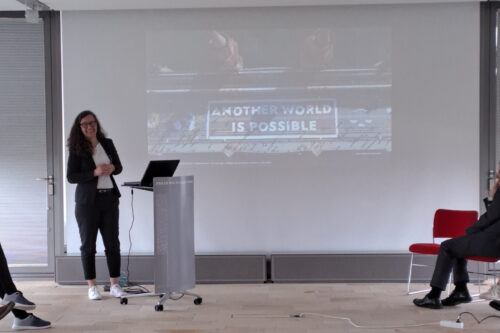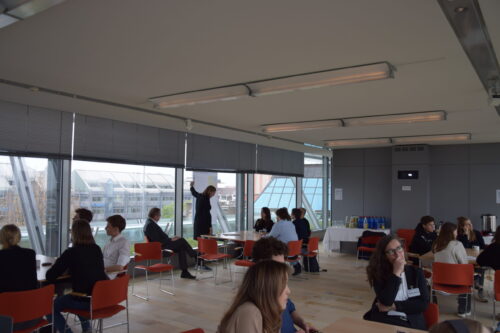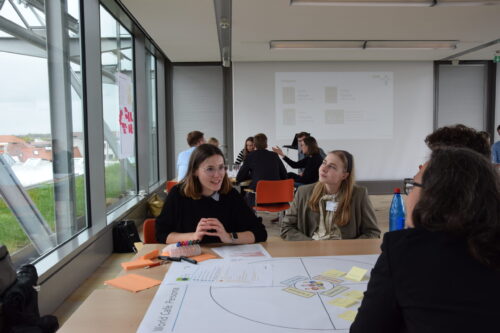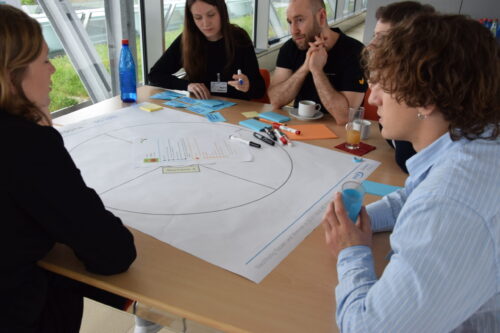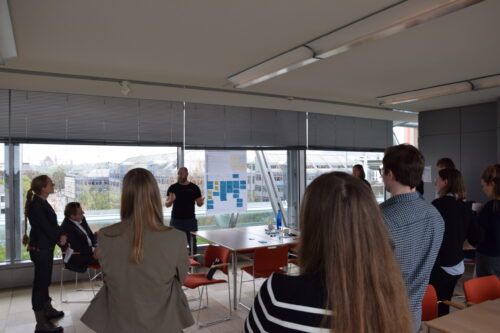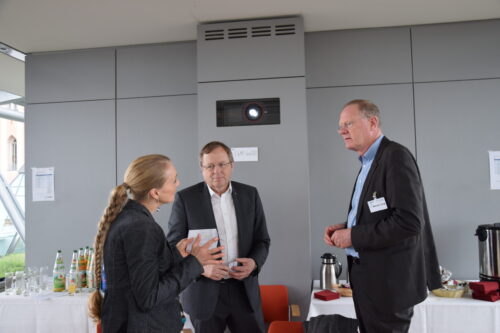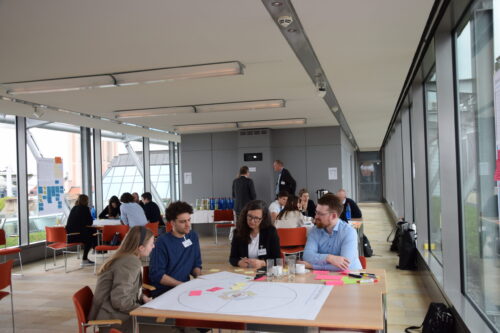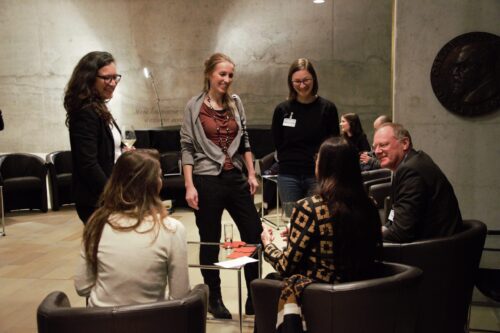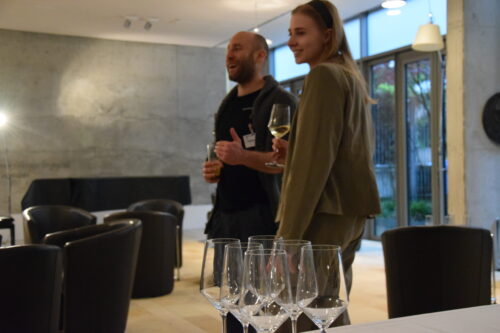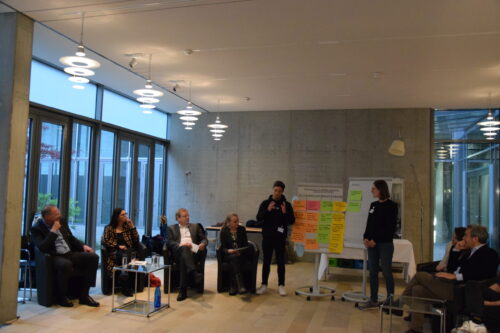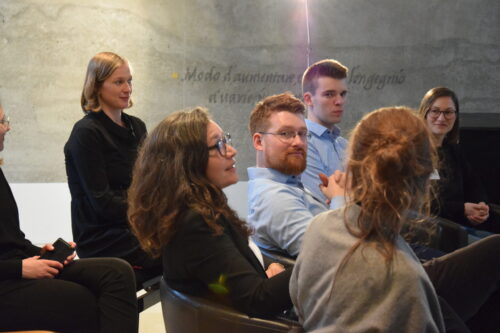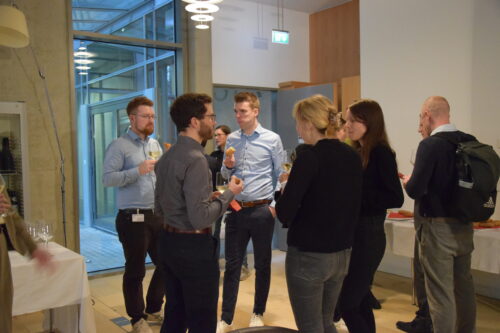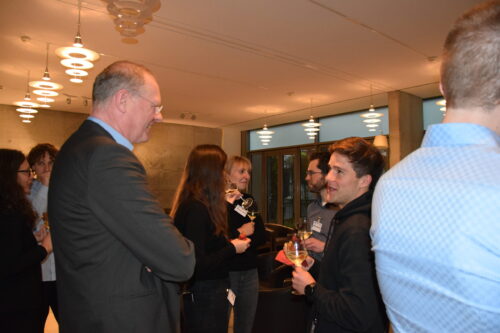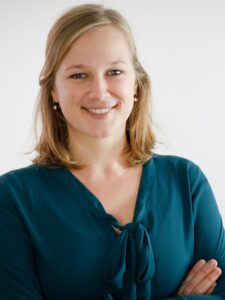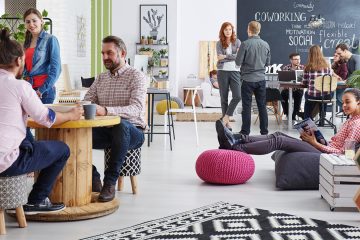#acaLAB: Sustainable construction and housing Construction meets climate change
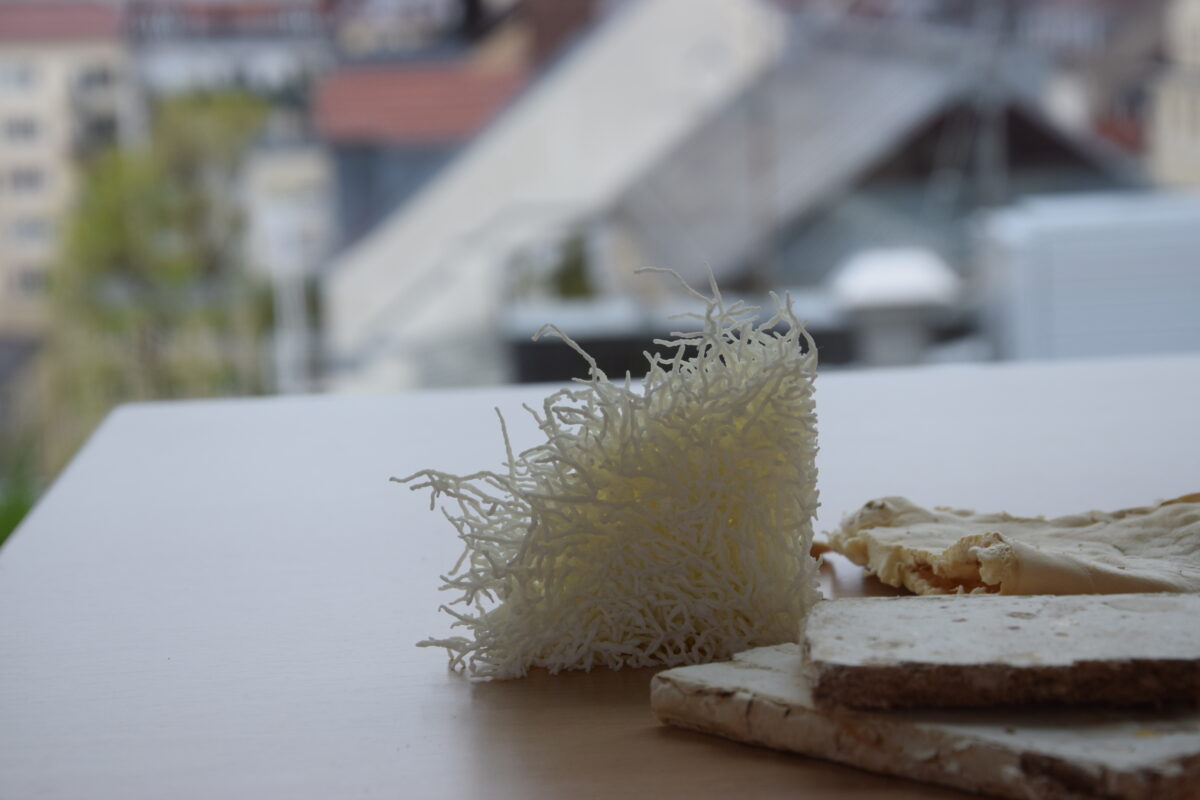
Munich, 28 April 2023
Construction meets climate change
Cities are the living spaces of the future. The United Nations predicts that almost 70% of the world’s population will be living in an urban space by 2050. At the same time, global issues such as climate change, scarcity of resources and population growth pose huge challenges for humanity. For that reason, a fundamental transformation, particularly in construction, is crucial.
A pilot event for acaLAB – Young Talents @acatech was held in 2019. Due to the pandemic, a follow-up event on the topic of “building and living sustainably” did not take place until this year, 2023.
At the event, experts and young talents from a variety of disciplines discussed how we could build in a more climate-friendly way. The participants worked together to develop future scenarios of sustainable and liveable cities where climate protection was also a consideration.
Impressions of acaLAB 2023
Visit to Prinz Eugen Park: Life in the neighbourhood, 9.30 a.m.
acatech President Jan Wörner welcomed the workshop participants to the Prinz Eugen housing development in Munich. The importance of sustainability in the construction sector is a topic that is particularly close to Jan Wörner’s heart. As he said at the launch of #acaLAB 2023: “We want to shape the future with your spirit”.
The participants then did a tour of Prinz Eugen Park, guided by Klaus Illigmann (Head of Division in the City of Munich Department for Urban Development). Prinz Eugen Park is an ecological model settlement with roughly 1,800 apartments built from wood. The development is designed not only on the basis of sustainability but also on “neighbourhood community” (Quartiersgemeinschaft) principles with various social and structural facilities.
See here (in German) for more information on the planning of Prinz Eugen Park and here (in German) for more on life in the neighbourhood.
Welcome to participants and introductions, 11.00 a.m.
Following the tour of Prinz Eugen Park, the workshop participants assembled in the Oskar von Miller Forum. Young people working in architecture, civil engineering, geography, political science and a number of other disciplines were among the participants in the group.
Keynote speeches, 11.30 a.m.
The workshop day started with a number of keynote speeches, which also sparked discussion among participants. Philipp Benz (Technical University of Munich) and Andrea Bitter (Architects4Future) spoke about fungus as a sustainable building material and “10 demands for sustainable REconstruction”.
Sustainable construction using fungus – can it work?
Fungi-based materials have gained in importance in recent years in the construction industry and in research. They can be used as a sustainable alternative to traditional building materials like concrete, brick and wood.
Fungi-based materials are particularly suitable for making insulation materials that are used to insulate buildings. These materials can be manufactured from fungal mycelium and vegetable waste and provide outstanding heat insulation. They also make effective soundproofing materials.
One advantage of fungi-based materials in the construction industry is that they are biodegradable and produce less waste than traditional building materials. They are also lighter than concrete or brick and are easier to transport and handle. The fact that they are made from renewable raw materials also improves their environmental footprint.
Although fungi-based materials are not yet widely used in the construction industry, some companies are already using these materials to build more sustainable and more environmentally friendly buildings. The use of fungi-based materials is expected to continue to increase in the future, as demand for environmentally friendly materials rises.
Construction transition now! – 10 demands for sustainable REconstruction
Andrea Bittner from Architects4Ffuture sent a clear message to the architecture industry in her speech: it’s time for change. Architects4Future lists 10 demands for a construction transition and is calling on architects and urban planners to reconsider their approach to planning and design.
The demands include a critical analysis of demolition, an accelerated energy transition and a consistent implementation of a circular economy and climate positivity. The aim is to create a healthy built environment, engender a greater appreciation for existing buildings and encourage more biodiversity.
Architects4Future is calling on the industry to exercise social responsibility and to adopt a holistic and integrated approach to planning. According to the organisation, it is time to shape the future of architecture in a sustainable and responsible way and to think and share in networks when building.
Workshops, 12.45 p.m.
Christian Koldewey and Patrick Ködding (both from the Heinz Nixdorf Institute) facilitated the workshops, which focused on developing future scenarios for sustainable construction and housing. Using the scenario thinking method, as it is known, participants travelled in their imagination to 2050. They created various scenarios to develop different futures for sustainable construction and housing in metropolitan regions like Munich. The four scenarios differed according to the assumptions that were made, for example how strictly political guidelines were implemented and how advanced the innovation culture was in the construction sector.
A people-focused approach
In order to extrapolate courses of action for a liveable and urban future in metropolitan regions, the participants discussed the future needs of fictitious personas in a variety of social milieus. Depending on the individual situation of the personas, their needs and values differed with regard to sustainable construction and housing quality, affordability, social environment and mobility infrastructure. The courses of action ranged from the introduction of CO2 pricing and income-related rental price models to regulations or bans on the use of harmful building materials and the implementation of flexible usage concepts in housing. The latter two options in particular could be achieved using digital platforms, such as an accommodation listings service and a flexible layout planning tool, for example.
The participants were in agreement that social cohesion could also be supported by the planning of community spaces and the funding of neighbourhood assistance services in the form of sharing communities and labs. In the context of the UN’s Sustainable Development Goals, they added a suggestion for planning to focus on models for a blue-green built environment, such as the increased greening of façades and roofs or the concept of the sponge city. The debate about the expansion of an affordable and CO2-neutral public transport system and the “land issue”, as it is known, dominated the participants’ discussion. They also agreed on the importance of funding and the (de)regulatory measures that were the remit of policymakers: in order to set the course for a liveable and sustainable future, coordinated action at municipal, state and federal level was crucial.
Fireside chat, 7.30 p.m.
The participants discussed the results of the workshop with our experts in the acaLOUNGE: Vice President of Sustainable Transformation and Chair of Energy Efficient and Sustainable Design and Building, Werner Lang (Technical University of Munich), Civic Planning Officer, Elisabeth Merk (City of Munich) and acatech President, Jan Wörner.
One of the issues focused on in the discussion was the question at the heart of the transformation needed to comply with the European Green Deal: how can more openness and flexibility be achieved in society? Elisabeth Merk wanted to see a future construction industry that had a more interdisciplinary focus, which also took on board ideas from the realms of art and design, for example. Werner Lang saw a role for science in promoting a shift in values in society – experts had an obligation to involve citizens in the discussion of current issues and measures to comply with the European Green Deal.
Jan Wörner pointed out the importance of openness among all participants and their active support for social participatory processes. He alluded to the motto of Antoine de Saint-Exupéry: It is not for us to forecast the future, but to shape it. This is what the engineering sciences aspire to, and this is what acatech aspires to. It is increasingly a matter of not only creating opportunities but also taking the opportunities. The policy framework must be conducive to doing this. When it comes to legal requirements for sustainable construction and housing, targets rather than measures must take priority in the debate.



